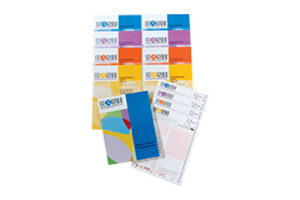Author:
Achilles N. Bardos, PhD
Overview:
A versatile, multi-level, norm-referenced achievement test that helps measure math, reading, and language skills for children and adults
Age Range:
(BASI Survey): 8:0-80:0
Administration:
Paper-and-pencil
Scoring Option:
Q™ Local Software, Mail-in Scoring Service, or Manual Scoring
Grade Range:
(Comprehensive and Survey): 3-12
RTI Tiers:
Survey - 1; Comprehensive - 1 and 2
Completion Time:
115 minutes (complete battery); 25 minutes each math and verbal subtests (survey)
Publication Date:
2004
Developed by Achilles N. Bardos, PhD, co-author of the GAMA® (General Ability Measure for Adults)test, the BASI series comprises multi-level, norm-referenced achievement tests for children and adults that may be group- or self-administered.
Providing both comprehensive and survey versions, the BASI series helps present a complete evaluation of academic skills. These convenient tests yield standard scores, national percentile rankings, grade equivalency, age equivalency, and performance classification by learning objective—without requiring individual administration or lengthy testing.
Normed during the 2002–03 school year and highly correlated to the leading individually and group-administered achievement and intelligence tests, the BASI series provides a current, valid, and reliable assessment tool.
Choose the Comprehensive or Survey Version Based on Your Evaluation Purpose
Use the Comprehensive version:
- to aid in diagnosing learning disabilities,
- for understanding specific areas of strength or weakness at a detailed level, and
- for measuring progress.
Use the Survey version:
- for an accurate snap-shot of overall academic achievement in verbal and math skills,
- to screen for academic strengths and weaknesses, or
- to determine which level of the BASI Comprehensive test to administer to an adult or to a student performing significantly above or below grade level.
Comprehensive Test
The comprehensive test is comprised of six timed subtests:
- Vocabulary (10 minutes)
- Spelling (10 minutes)
- Language Mechanics (10 minutes)
- Reading Comprehension (30 minutes)
- Math Computation (20 minutes)
- Math Application (35 minutes)
Each of the subtests can be administered independently or in any combination. Total test administration time is just under two hours. The subtests also can be administered untimed to yield criterion-referenced performance information.
The test is organized into four grade-specific levels:
- Level 1 for grades 3–4
- Level 2 for grades 5–6
- Level 3 for grades 7–8
- Level 4 for grades 9–12
Each level has two forms: Form A has fall norms (Aug.-Dec.) and Form B has spring norms (Jan.–July).
Survey Test
The survey test is a single, brief version of the comprehensive test comprised of a math subtest and verbal subtest, each of which is a 25-minute timed instrument. The subtests can be administered together or independently and are appropriate for grades 3–12 and adults.
How to Use These Tests
The comprehensive version can help:
- Determine a child’s or adult’s academic strengths and weaknesses
- Diagnose learning disabilities in reading, mathematics, and spelling
- Efficiently complete follow-up evaluations
- Design learning interventions
- Measure progress throughout the year or over several years
- Compare a student’s performance to the national average
- Place college students
- Estimate Adequate Yearly Progress for No Child Left Behind reporting
- Evaluate offenders for educational programs
The survey version can help:
- Gain a quick overview of achievement
- Screen for giftedness
- Test groups that are diverse in age and/or ability
- Determine which level of the BASI series to administer to an adult or student performing significantly above or below grade level
- Test in situations where time is limited or where it is not necessary to gather detailed information by learning objective
- Evaluate offenders at intake
| Less time |
Takes only 25 minutes to administer each subtest. |
| Flexibility |
Each subtest can be administered independently; test only for the relevant skills. |
| Wide range |
The series was developed to have a low basal level and a high ceiling. Even individuals with academic deficiencies will be able to answer items to help generate informative data about their performance. Conversely, the series will challenge high-performing students and help differentiate between gifted and highly gifted individuals. |
| Current norms |
The BASI series was standardized during the 2002–03 school year, using a sample matching 2000 U.S. Census data. |
| Group and self administration |
Frees up the time that would be taken up administering tests individually. |
| Breadth of scores |
Generates standard scores, percentile scores, grade equivalency, age equivalency, percent correct, and performance classification at the skill composite, subtest, and learning standard levels. |
Psychometric Information
The BASI Comprehensive and Survey versions were standardized on a sample of more than 4,000 students (grades 3–12 and college) matched to the 2000 U.S. Census demographic information. The Survey version also was normed on a sample of 2,000 adults (ages 18–80), matched to the 2000 U.S. Census demographic data. The samples were stratified by race and ethnicity, age, gender, geographical region, and socio-economic status.
Report Options
BASI Comprehensive Test Reports
Student Summary Report
A one-page report that summarizes the student’s performance by skills composite, subtest and learning objectives.
A parent’s report is included with each student report. The parent’s report graphs percentile scores and includes a space for written comments.
BASI College Report
A free, optional report available for level 4 of the BASI Comprehensive version, the College Report shows how a student’s BASI scores compare to the scores of a census-matched national sample at the student’s grade level, and to two samples of college students:
- those in their first year at a two-year community college, and
- those in their first year at a four-year college or university.
Percentile rank scores for the BASI subtests (Vocabulary, Reading Comprehension, Spelling, Language Mechanics, Math Computation, and Math Application) and BASI composites (Reading Total, Written Language Total, and Math Total) indicate what percentage of the national sample the student scored as well as or better than. The student’s Growth Scale Value (GSV) scores for these six subtests and three composites are also reported, as are the corresponding GSV scores for the two college comparison samples. In addition to the college students’ average GSV scores, the range of the middle 50% of scores for each sample is shown.
Adult Summary Report
A one-page report that summarizes an adult’s performance by skills composite, subtest, and learning objectives.
BASI Survey Test Reports
Summary Report
Summarizes a student or adult’s performance on the math and/or verbal subtests. This report is available for the entire Survey test or for either the math or verbal subtests.
Collaborative Sample Reports
BASI Collaborative Sample Reports
Scoring and/or Reporting Options
Q Local™ Scoring and Reporting Desktop Software – Enables you to score assessments, report results, and store and export data on your computer.
Mail-in Scoring Service – Specially designed answer sheets are mailed to Pearson for processing within 24–48 hours of receipt; results returned via regular mail.
BASI Flash Demo
Playing the Demo Now
- BASI™ demo
If the demo doesn’t start, you may not have the Macromedia Flash Player software necessary to play the demo. Download a free copy of Macromedia Flash Player. If the demo plays too slowly on your system, use the option below to download and save the demo file to play at a later time.
Download the Demo and Play It Later using free Flash Player software
- Download and save the demo file to play at a later time by right-clicking on the file link: basi.swf
Then choose Save Target As… Next choose a location in which to save the file. To play the file later, go to the location you downloaded the file and double-click on it (basi.swf). If the demo doesn’t start, you may not have the Macromedia Flash Player software necessary to play the demo. Download a free copy of Macromedia Flash Player.
Download the Demo and Play It Later – no extra software necessary
- Download and save the demo file to play at a later time.
You should not need special software to run the file. Just go to the folder in which you saved the file and double-click on the basi.exe file. Please note, though, that some organizations set up their servers to prevent the downloading of executable files (.exe files).
BASI Brochure
BASI Kit Brochure
View the Manual Addendum
 BASI™ manual addendum
BASI™ manual addendum





